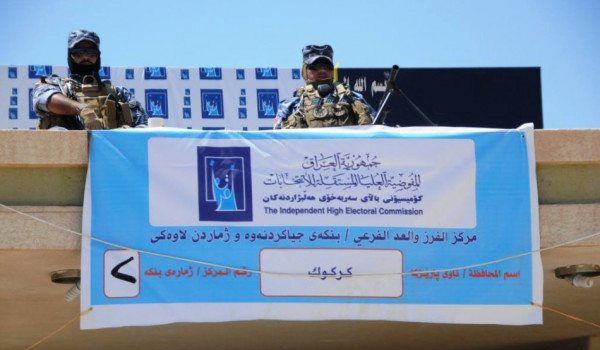The popular view is that: no matter what the results of the elections are, they will neither result in changes in the significant administrative positions nor will they cause the legal and administrative transition. Opposite to the democratic aspiration, the first and the last decision will be made by the political parties.
Unlike other Iraqi provinces, Kirkuk had been deprived by law of bringing changes through democratic means and escaping the longstanding political power-sharing. This is despite the fact that over one million voters wait with hope of change to visit the ballots.
The only time that the provincial council elections took place in Kirkuk was in 2005; since then, no such elections have been held, and the administrative positions have been distributed based on the agreements of the political parties.
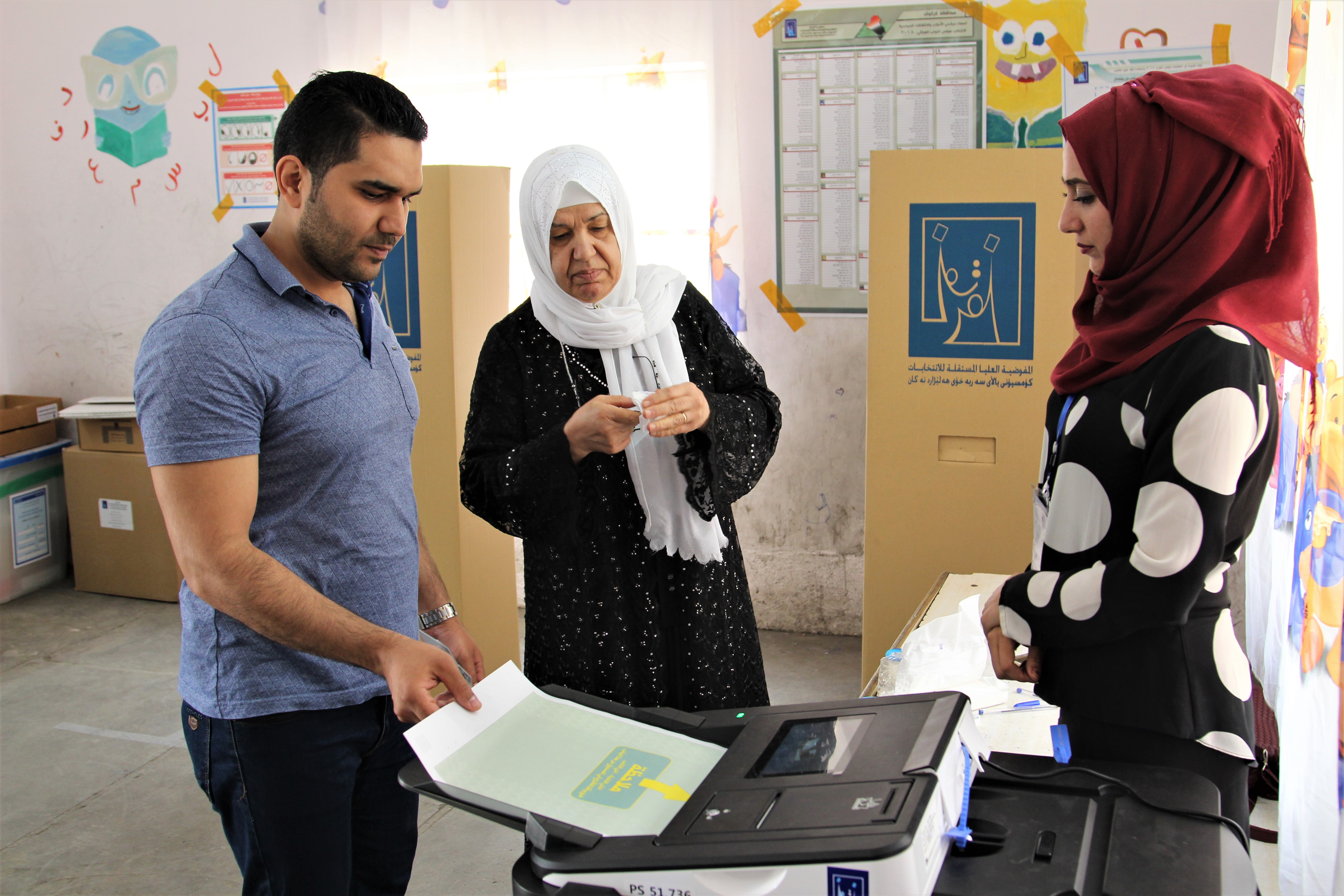
Kirkuk in the Electoral laws
According to the 12th law of the 2018 Iraqi provincial council elections, Kirkuk will participate in the next provincial elections, which has not happened in the province due to rivalry between the ethnic components of the city.
A subsection of this law is encompassed in Article 35 for provincial elections in Kirkuk. There are, however, some rules and conditions, which have been set after several meetings of parliament members of the province in the Iraqi Council of Representative.
A section of the article is devoted to the cooperation between the Independent High Electoral Commission (IHEC) with the relevant ministries to observe the voters list, which is disputed by the Arab, Kurdish, and Turkmen political parties of the city.
The provincial council, another section of the article mentions, will establish a procedure for the distribution of the high administrative positions of the province, excluding the federal positions. The positions will be given to the people of the province if they fulfill the legal requirements, also taking the shares of the ethnic components into consideration.
Another section indicates that the results of the provincial council will not change the legal and administrative standing of the province, meaning the province will remain under the jurisdiction of the federal government.
The new amendment of the provincial electoral law reduces the provincial seats to 14 from 41.
Disillusioned Voters
People of the city in the last 15 years were given a chance to elect their representatives to administer the province.
“Since 2003, Kirkuk has not experienced a real election, but rather the political elite has exchanged the positions among themselves. No opportunity has been given to academics and people with qualifications,” Hana Ibrahim.
Hana, 28, lives in Kirkuk and is a government employee. He said that instead of serving, elections had become a tool for the fight of identity and ethnic groups. “Whoever has been able to impose his power have ruled, not the results of the elections.”
Hana believes that the ineffectiveness of the elections has weakened people’s trust in the elections.
According to the statistics of IHEC, a million and 100 thousand people are eligible to vote among the population of the province, which is a million and 600 thousand.
Salar Rabar, who is from Kirkuk, stated, “after each election, we hear the distribution of the positions based on political parties shares, what we do not hear is the real results of the election, which, as a voter, is my preference.”
“If my vote does not change anything about the reality, then what value is left to my vote?” Rabar asked.
Salar Rabar, 27, voted in numerous elections such as the provincial elections and successive Iraqi federal elections. In every election, he had hope that his vote will make a change, “but it did not result in changes, the status of the city will remain the same because the historical identity struggle is the barrier for any change.”
The Kurdistan Regional Government and Iraqi Federal Government claim the disputed areas, including Kirkuk. Article 140 of the constitution sets the producers for the determination of the fate of the areas through normalization of the areas, organizing a census, and holding a referendum.
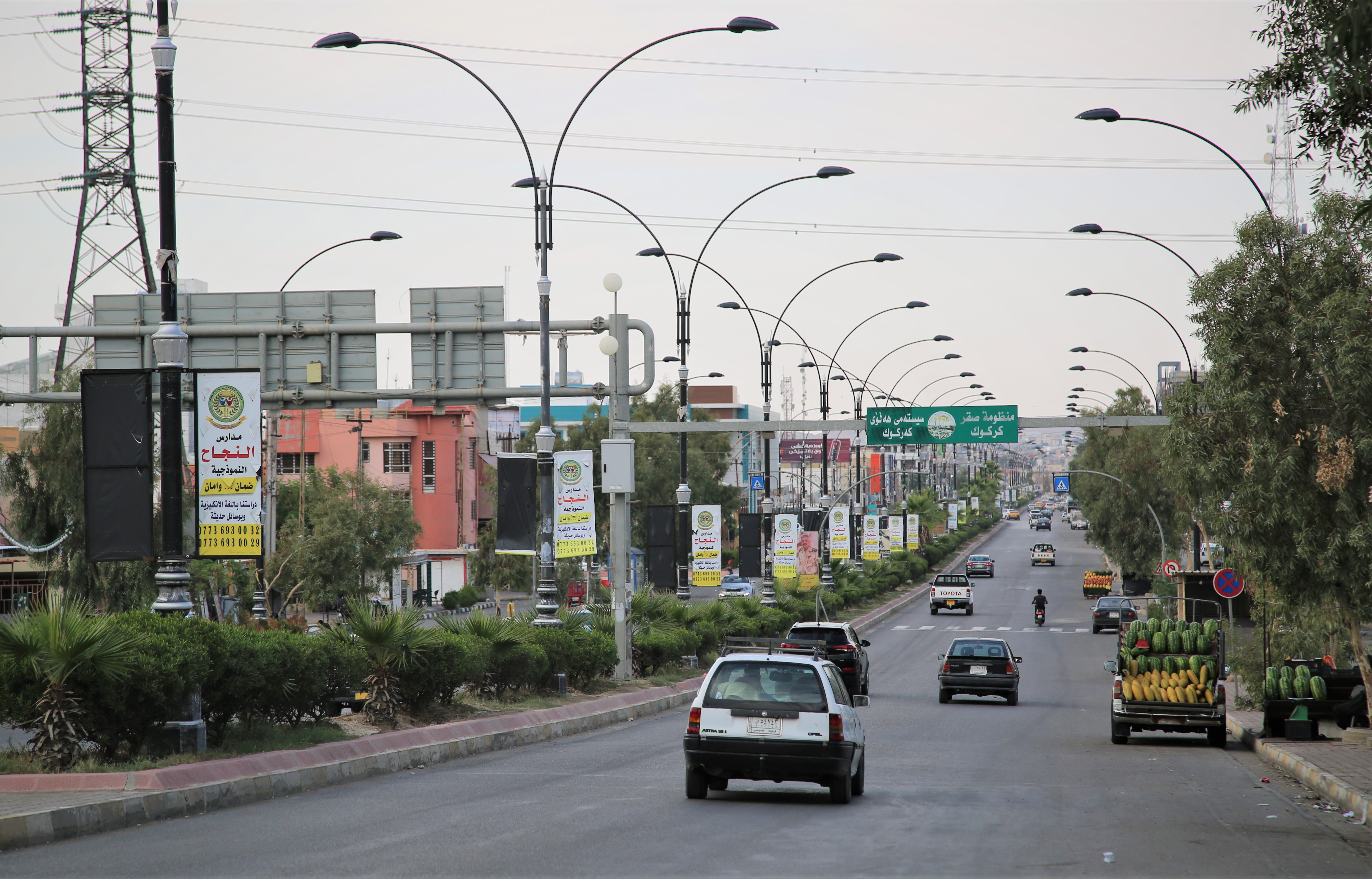
Kirkuk, a main street in the city center, 2020. Photo: KirkukNow
Changes Based on Election Eesults
As the provincial council elections have been the political deadlock among the political parties, its results to share the positions among the different ethnic components of the city is disputed, as well.
“The best solution to fix the mistakes made in the past is to practice the principle of compromise and joint political, security, social administration, which would stabilize the city,” Mardin Jokaya said.
Jokaya, a leader of the Turkmen Front, believes similar to the formation of the government, the distribution of positions in Kirkuk should be done based on compromise. There should be a joint administration, not to set the position based on the results of the elections, he thinks.
“Besides that way, any other way will fail,” stated Jojkaya
Kurdish Brotherhood Faction had 26 seats out of 41 in the dissolved provincial council. Shia and Sunni Turkmen, together, had nine seats, followed by Arabs with six seats.
Ali Qalaii, an administrator at the Patriotic Union of Kurdistan (PUK) Headquarter in Kirkuk, says that the only peaceful approach to power is the elections, “but unfortunately, that kind of democracy has not rooted itself in Iraq and it does not reach all of the subdivision of groups within the government, so it is natural that elections sometimes do not have good effects.”
“Elections have not been able to cause changes in Kirkuk; all that happened was bringing forward some political parties, as ethnic components, so that they can practice democracy and elections because the Baathist regime previously deprived them of this right.”
Under the Baathist regime, Arabs held the significant Iraqi administrative positions without any elections. Kurds then came to the top of power from 2003 until 2017 in Kirkuk and the other disputed areas.
Nazim Shmmari, a leader of the United Arab Front (UAF) in Kirkuk, stated, “people fear elections because they do not trust it. In the past, not only elections have not resulted in changes; elections have paved the way for corruption.”
“We need a replacement, a solution for administration, and that includes a free and fair election under the supervision of the United Nations that will have the people’s will in its outcomes.”
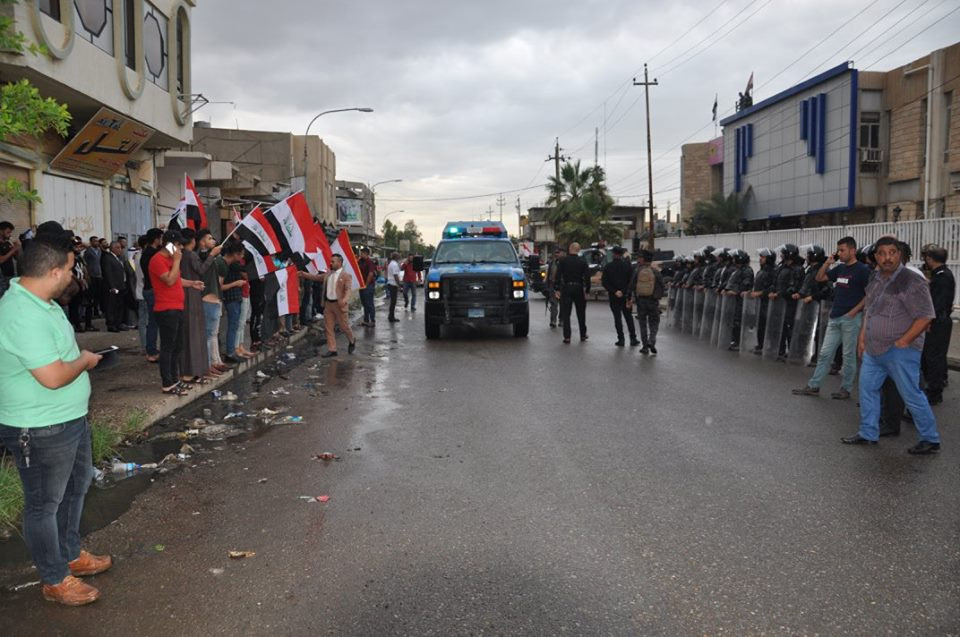
Since October 16, 2017, Arab parties have secured governorship, when the Kurdish forces withdrew from the city due to the disagreement between the federal and regional governments over the KRG independence referendum.
Political Power Sharing or Ballot Boxes?
For years now, administrative positions have been shared among ethnic components of the city.
Now that the governor is Arab, Kurds are asking for the position back, and the Turkmen want to hold that position at least once.
Back when Kurds secured governorship, the head of the provincial council was given to Turkmen, and his deputy was an Arab.
“Before any solutions, article 140 should have been implemented to resolve the political and administrative disputes… then we would not have needed power-sharing, but rather based on elections, the administration would have been determined,” Qalai stated.
Qalai stated, “we think Iraq has not given adequate rights to the Kurds, that is why elections have not been a mechanism to bring about stability in these areas.”
Qalai states that the percent of Kurds is 17 to 18 in the province’s administration, Turkmen are 26 to 27 percent, and the rest are Arabs.
Based on a project proposed by the former Iraqi President Jalal Talabani, Kirkuk administrative positions were shared among the three main ethnic components of the city. Each ethnic components, Arabs, Kurds, and Turkmen were allocated 32 percent of the positions, and the other four percent were given to Christians of the city, according to the project. However, such a project is disputed now.
“We propose that after every election, the three ethnic components sit and divide the position amongst ourselves. For instance, the governorship can be given to us for a period, and the police department for Arabs. The results of the elections should only be about administration and survive, not the political landscape,” the Turkmen leader said.
Jokaya brought fraud, as another reason for which they do not want to depend on the elections that he believes does not reveal the real constituency of the political parties.
Since 2014, the head of the provincial council was allocated for the Turkmen, but they have not nominated someone among themselves. As a result, a Kurd has become the acting head since then.
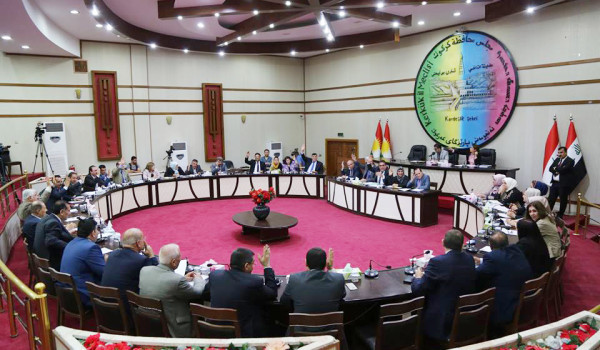
Nazim Shmmari says, “Elections cannot create changes unless it is under the supervision of the United Nations and an independent commission that is not infiltrated by political parties.”
Shmmari thinks that it is time for “a new political system for administration in Kirkuk and Iraq that is in line with the city’s situation and the international order.
In the past years, the federal government has more than the time suggested that the different ethnic groups of the city should reach an agreement to jointly administer the city and keep balance. For that, the Kurds, Arabs, and Turkmen parties met several times, but are yet to reach an agreement.
The Legal Status of Kirkuk
“As long as there are political competitions that political parties do not compromise or the regional and international interference is not prevented, giving special status to the city will continue,” Hussein Shekhani, an election expert, said.
“The strong disagreement on the elections have resulted in always giving special status to Kirkuk, which is not decisive,” he stated, “Elections have not been able to achieve voters' aspirations because the votes are being rigged, which is opposite the people’s perception and will toward the province.”
Shekhani believes that eventually, the right choice is elections because electing someone for a position is better compared to the other ways.
Last year, during the efforts to amend the electoral law, the negotiations on the elections related to Kirkuk took the most time as the presidency of the Iraqi Council of Representatives and the Legal Affairs Committee nearly held ten meetings with the representatives of the different ethnic components of the city to reach an understanding.
Rebwar Hadi, Head of the Legal Affairs Committee, said that “sometimes the laws are in the interest of one side over another and the other sides do not agree.” For that, he brought the example of Iraqi federal elections laws that Kurds do not agree with some of the articles, but was later passed in a majority vote.
Part of the Kurds’ disagreement with the law is related to Kirkuk. “The discussion is on how many election districts there should be in Kirkuk.”
Since late 2019, the provincial councils in Iraq, including Kirkuk, have been dissolved by parliament. Also, the date of the next provincial elections is yet to be set. The discussion on power-sharing in Kirkuk continues, which has not resulted in any agreements.

